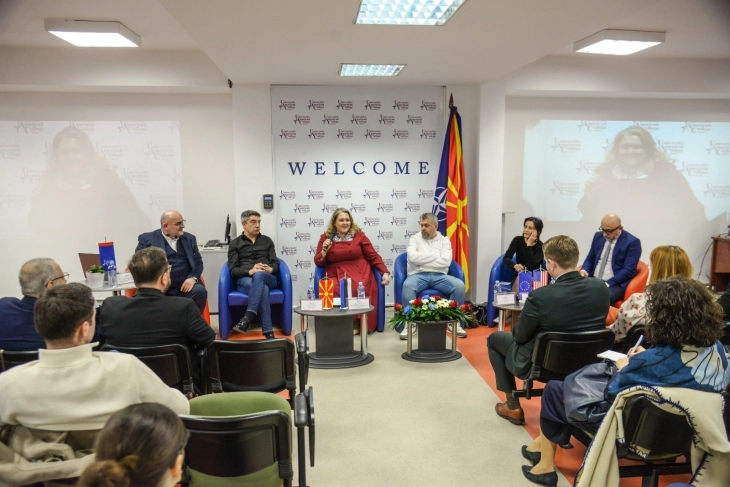Petrovska: Hybrid threats countered through unity
- Defense Minister Slavjanka Petrovska took part Thursday at debate "Future of NATO and the Balkans: Lessons from Estonia", discussing the need for unity in countering hybrid threats and strengthening of collective security within NATO as an alliance based on values and principles.

Skopje, 29 February 2024 (MIA) - Defense Minister Slavjanka Petrovska took part Thursday at debate "Future of NATO and the Balkans: Lessons from Estonia", discussing the need for unity in countering hybrid threats and strengthening of collective security within NATO as an alliance based on values and principles.
Minister Petrovska referred to the hybrid threats that countries in the region and NATO are faced with, noting that societies resilient to disinformation can be built only through coordination and unity, the Ministry of Defense said in a press release.
"We are aware of the Russia's hybrid activities in our country. Their objective is to create a perception of the institutions as vulnerable and dysfunctional, thus reducing the people's trust in them. The best response to this threat is to build strong collective resilience," said Petrovska and added that institutional transparency and openness represent an important tool in the fight against disinformation.

On the NATO membership, the Defense Minister said the bold decision in 2018 enabled the country to join the Alliance, which has been the best investment in the security of the country and its citizens.
Petrovska said regional cooperation is key in the integration process, while noting North Macedonia's support to NATO's open-door policy.
"Political structures in the region must take difficult but right decisions in order to speed up the integration processes. We all share a similar past but have a common future," said Petrovska.
The debate tackled Estonia's experiences in managing Russian disinformation campaigns and impact of the Russian aggression in Ukraine.
The event is part of project "Seeing is believing-Building Public Understanding of NATO & Resilience in the Balkans by Bringing Macedonian and Montenegrin Journalists to Estonia”, implemented by Forum-Center for Strategic Research and Documentation, in cooperation with the Johns Hopkins School of Advanced International Studies (SAIS) – Bologna Institute for Policy Research (BIPR).
Photo: Ministry of Defense







